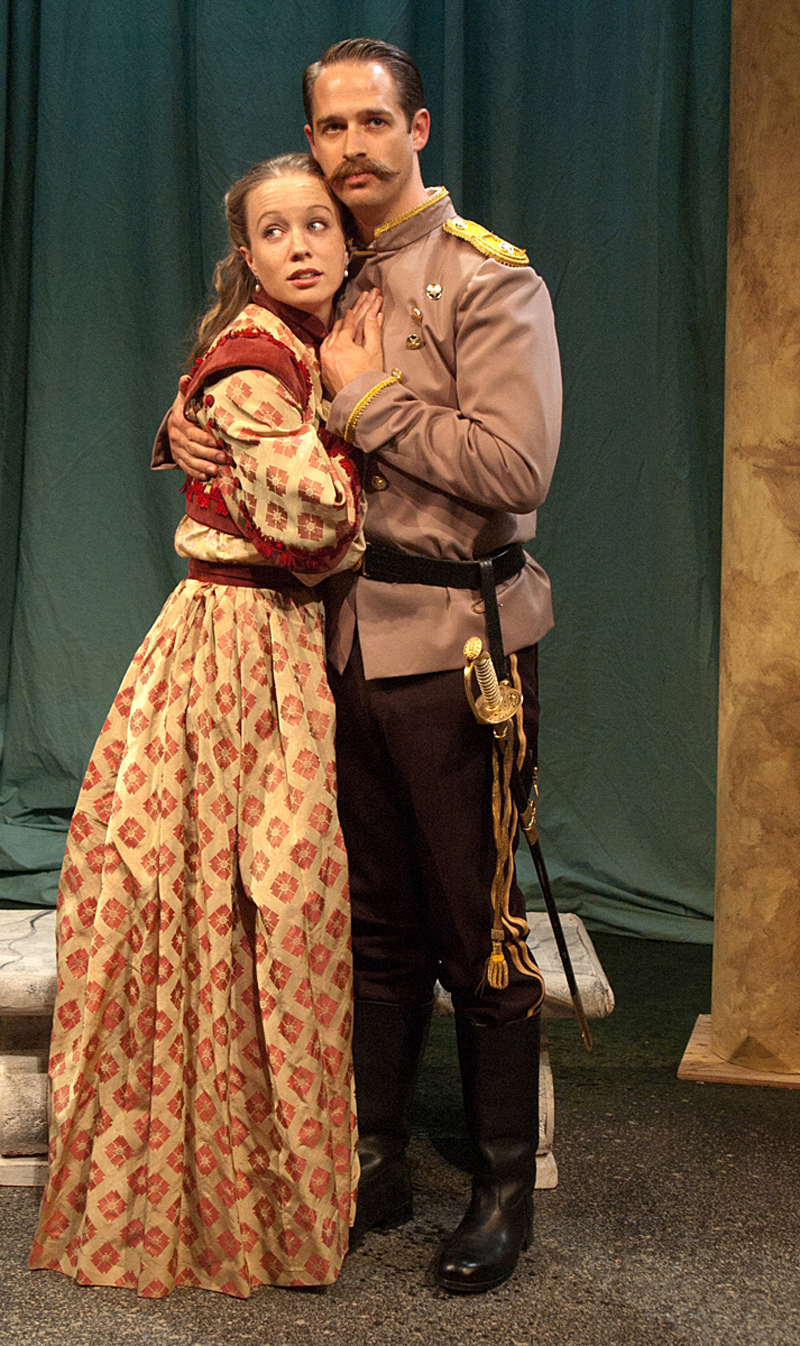This crisp rendering of George Bernard Shaw’s classic 1894 parlor comedy is set where he intended: provincial Bulgaria in the 1880s. “Why this, why now?” you might reasonably ask. The play features the folly of a war between two posturing states (Serbia versus Bulgaria, so ridiculous it only lasted two weeks), the arbitrariness of peacemaking (enemies become colleagues and lovers almost instantly), and the inevitable destruction of the old class system (servants and masters are soon making whoopee). It’d be a stretch to connect such vintage themes to current events (e.g., Prince William’s recent marriage to a commoner, Kate Middleton), and director Shana Bestock admits she simply chose Arms and the Man because it made her father “guffaw” when he read it.
As it did me to watch it. Upper-class young Raina Petkoff (Anne Kennedy) has finally agreed to marry dashingly dim-witted Major Sergius (Ryan Childers), and must convince herself of his valor in order to stomach the union. Her mother Catherine (Julie Jamieson) adores Sergius, while her father Paul (Gordon Carpenter), who fought alongside him against the Serbs, merely supports the bond because it makes sense. Raina, under the whimsical arches of Richard Schaefer’s set (they’re labeled “Noble,” “Heroic,” and “Love”), emptily brags of her dope’s accomplishments while planning to control him once unhappily married. Enter a fugitive Swiss mercenary for the Serbs, Captain Bluntschli (irresistible Frank Lawler), who hates the war and loves chocolate. Why should Raina shelter this enemy combatant? Hey, it’s a comedy, so she lectures him about good breeding and calls him her “chocolate-cream soldier” as their chemistry first smolders, then sparks.
As complications ensue (and the arches and columns are cleverly repurposed into more functional furniture), much humor derives from notions of what constitutes “civilized” culture. For instance, Raina and her mother believe in bathing once in a while, while her gruff father eschews the practice. Is the essence of modernity having an electric bell to summon the maid, or letting her show familiarity toward her “betters”? The servant couple-to-be Louka (Brenda Joyner) and Nicola (Mark Fullerton) embodies this debate, as he earnestly argues for “knowing one’s station” while she, deliciously louche, savors squibs of Petkoff family gossip that might liberate her from servitude and make her an equal.
All of which was topical in 1894, as England’s class structure was threatened by industrialization and, soon, World War I. Today, the upstairs/downstairs divide is something we savor nostalgically, as in PBS’s Downton Abbey. The pleasure in this revival is to observe its characters’ precise motivations and nuances. Everyone gets their chops around Shaw’s witty verbal shrapnel, and two hours go by in a wink.








